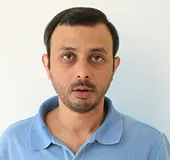The announcement on a Chief of Defence Staff (CDS) last year and the appointment of Gen. Bipin Rawat as the first CDS has been one of the key policy decisions made by the Narendra Modi government in its second term. In the aftermath of an emphatic election victory in May 2019, Mr. Modi pushed the needle on a long-pending reform for the establishment of a CDS, which was recommended by the Kargil Review Committee in 2001. The CDS will be “first among equals” in that he will consult and solicit the views of the services, but the final judgment will be the CDS’s alone and he will be the principal military adviser to the Defence Minister.
The role here will be confined to the acquisition matters exclusive to each service and won’t extend to the procurement of big-ticket items such as warships or fighter aircraft, which will remain under firm control of the Department of Defence (DoD). The CDS will be the single-point military adviser to the Defence Minister on matters involving all three services and the service chiefs will be obliged to confine their counsel to issues pertaining to their respective services. The CDS is also vested with the authority to provide directives to the three chiefs.
A chief as well as an adviser
Additionally, the CDS will lead the Department of Military Affairs (DoMA) dealing with the three services. Gen. Rawat will enjoy the rank of Secretary within the DoD and his powers will be confined to only the revenue budget. However, he is vested with the authority in prioritising inter-service procurement decisions as Permanent Chairman-Chiefs of Staff Committee. While the CDS does not enjoy any command authority, in his capacity as DoMA, he will wield control over issues governing promotions, travel, appointment to key posts, and overseas assignments. Consequently, the CDS will enjoy a substantial amount of influence. He will also perform an advisory role in the Nuclear Command Authority (NCA). Above all, his core function will be to foster greater operational synergy between the three service branches of the Indian military and keep inter-service frictions to a minimum. Fundamentally, the CDS will perform two roles, as the single point military advisor to the Defence Minister and as head of the DoMA.
With his inauguration as India’s first CDS last year, Gen. Rawat has hit the ground running with some important announcements. He has sought the establishment of an Air Defence Command (ADC) by directing the Integrated Defence Staff (IDS) to develop a proposal by June 30. An integrated ADC will enable nationwide coverage, prevent fratricide in the event of war and sustain jointmanship in air defence operations. In addition, Gen. Rawat has declared his intention to synergise logistics support, particularly in areas where two or more services are co-located.
Three main challenges
Gen. Rawat faces three main challenges. First, there are concerns over matters relating to service parochialism, though there have been no initial indications in this regard. If he privileges support for the Army, his parent service, he is likely to put himself on a collision course with the Naval and Air Force chiefs. A corollary is that as an infantry officer, he may become susceptible to bias in matters concerning procurement decisions or personnel issues focused on the infantry. The latter outcome could vitiate his capacity to address the needs of the armour and artillery corps. Any parochialism could potentially derail the primary objective of creating the CDS — promoting synergy and shaping acquisition priorities both within and between the services. Indeed, one of the tasks the CDS is to avoid wasteful expenditure and duplication of equipment in the inventories of the services.
But, the CDS’s role is not simply about tri-service cooperation, it is equally about fostering better cooperation between the MoD bureaucracy and the services and ensuring that projected and planned acquisitions of the services do not exceed capital allocations. A secondary challenge stems from the sheer levels of manpower in the Indian Army, which is the service that consumes the lion’s share of the defence budget. As it is a manpower-intensive fighting force, pruning the number of personnel in the Army will remain perhaps the most vexed challenge for possibly the entirety of Gen. Rawat’s tenure. This will demand innovation, given the fact that infantry-based operations geared for counterinsurgency warfare, which a large part of the Army is dedicated to undertaking, are manpower intensive.
There are no instant remedies, but one pointer is towards greater investment in Artificial Intelligence (AI) over the long term, a process that has already begun, but will require a dedicated push from the CDS over the course of his tenure. The application of AI technology is likely to lend itself to tanks and artillery systems, as is visibly evident from the vigorous pursuit of AI by China’s People’s Liberation Army.
The final challenge facing the CDS will be the extent to which he can encourage the services to support indigenisation. Cost saving is not simply about reducing manpower in the Army, it is equally about getting all the services, particularly the capital-intensive services, to rally behind a committed enterprise to support the native Research and Development for production and eventual deployment of weapons systems, which when procured from abroad drive a massive hole in the budget.
This commentary originally appeared in The Hindu.
The views expressed above belong to the author(s). ORF research and analyses now available on Telegram! Click here to access our curated content — blogs, longforms and interviews.




 PREV
PREV



